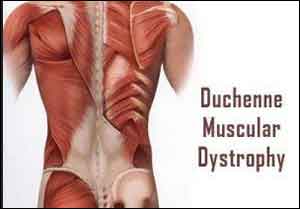- Home
- Editorial
- News
- Practice Guidelines
- Anesthesiology Guidelines
- Cancer Guidelines
- Cardiac Sciences Guidelines
- Critical Care Guidelines
- Dentistry Guidelines
- Dermatology Guidelines
- Diabetes and Endo Guidelines
- Diagnostics Guidelines
- ENT Guidelines
- Featured Practice Guidelines
- Gastroenterology Guidelines
- Geriatrics Guidelines
- Medicine Guidelines
- Nephrology Guidelines
- Neurosciences Guidelines
- Obs and Gynae Guidelines
- Ophthalmology Guidelines
- Orthopaedics Guidelines
- Paediatrics Guidelines
- Psychiatry Guidelines
- Pulmonology Guidelines
- Radiology Guidelines
- Surgery Guidelines
- Urology Guidelines
Glucocorticoids offer long-term benefits for patients with Duchenne muscular dystrophy

Glucocorticoids, a class of steroid hormone medications often prescribed to patients with Duchenne muscular dystrophy (DMD), offer long-term benefits for this disease, including longer preservation of muscle strength and function and decreased risk of death. These findings support the standard prescribing practices in many clinics and could help sway parents who are on the fence about their children receiving these therapies, say authors of a study published online Nov. 22, 2017, in The Lancet.
DMD is characterized by loss of muscle function and progressive muscle weakness that begins in the lower limbs and typically affects males due to the location of its causative genetic mutation. Patients with this devastating neuromuscular disease often receive glucocorticoids at some point as the disease progresses. Studies since the late 1980s have confirmed short-term benefits to treating with these drugs, including delaying the loss of muscle strength and function.
However, no prospective study had followed long-term glucocorticoid use in these patients, explains Heather Gordish-Dressman, Ph.D., a statistician at the Center for Genetic Medicine Research at Children's National Health System and study senior author. The lack of long-term data led some physicians to delay treatment with these drugs since their use can lead to significant side effects, including weight gain, delayed growth, and immunosuppression.
"Everyone had the idea that long-term use could be beneficial, but nobody had really rigorously tested that," Gordish-Dressman says.
Craig McDonald, M.D., a University of California, Davis, professor and lead author of the study adds: "This long-term, follow-up study provides the most definitive evidence that the benefits of glucocorticoid steroid therapy in DMD extend over the entire lifespan. Most importantly, patients with Duchenne using glucocorticoids experienced an overall reduction in risk of death by more than 50 percent."
To determine whether the short-term benefits of these drugs extend in the long term, Gordish-Dressman and researchers scattered across the country tapped data from the Cooperative International Neuromuscular Research Group's Duchenne Natural History Study, the largest study to follow patients with DMD over time. They gathered data for 440 males with DMD aged 2 to 8 years old. About 22 percent had never taken glucocorticoids or had taken these medications for less than one year. The remainder had taken them for at least one year or longer.
By analyzing data for up to 10 years for these patients, the long-term benefits became clear, Gordish-Dressman adds. Glucocorticoid treatment for patients who received it for more than one year delayed loss of mobility milestones that affected the lower limbs by 2.1 to 4.4 years, such as going from supine to standing, climbing four stairs, and walking or running 10 meters, compared with boys who received the medications for less than one year. Long-term glucocorticoid therapy also delayed the loss of mobility milestones in upper limbs, such as hand function, performing a full overhead reach and raising the hands to the mouth.
Long-term use of these drugs also was associated with a decreased risk of death over the length of the study. Furthermore, deflazacort--a glucocorticoid recently approved by the Food and Drug Administration specifically for DMD--delayed loss of the ability to move from supine position to standing, walking and hand-to-mouth function significantly better than prednisone, the most popular glucocorticoid prescribed for DMD in the United States.
Gordish-Dressman says that glucocorticoids are currently a standard part of care for most patients with DMD, with some clinics prescribing these medications as soon as patients are diagnosed. However, because long-term data supporting their use was lacking, some physicians hesitate to prescribe glucocorticoids until the disease had progressed, when patients already had lost significant function.
Future studies will examine which medicines in this class of drugs and which regimens might offer the most benefits as well as how benefits differ with longer-term medication use.

Disclaimer: This site is primarily intended for healthcare professionals. Any content/information on this website does not replace the advice of medical and/or health professionals and should not be construed as medical/diagnostic advice/endorsement or prescription. Use of this site is subject to our terms of use, privacy policy, advertisement policy. © 2020 Minerva Medical Treatment Pvt Ltd